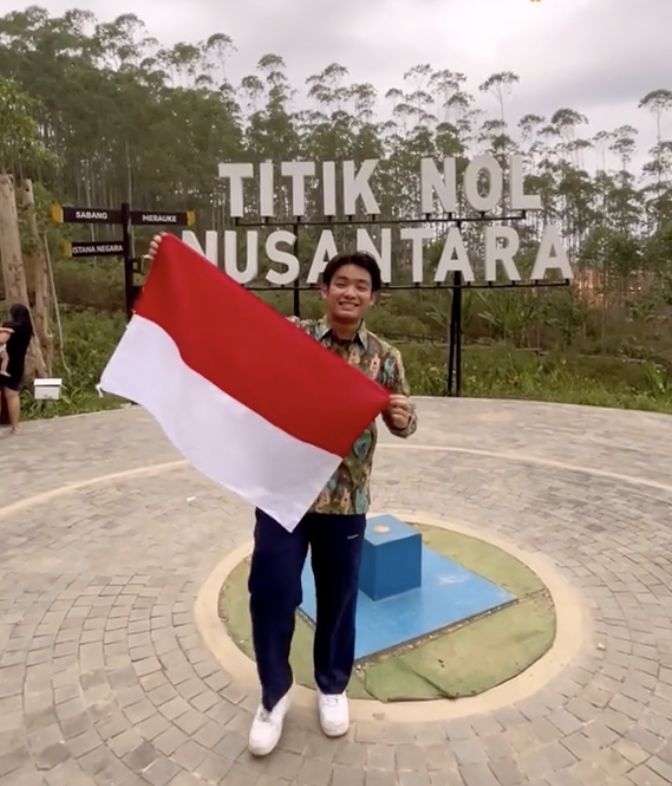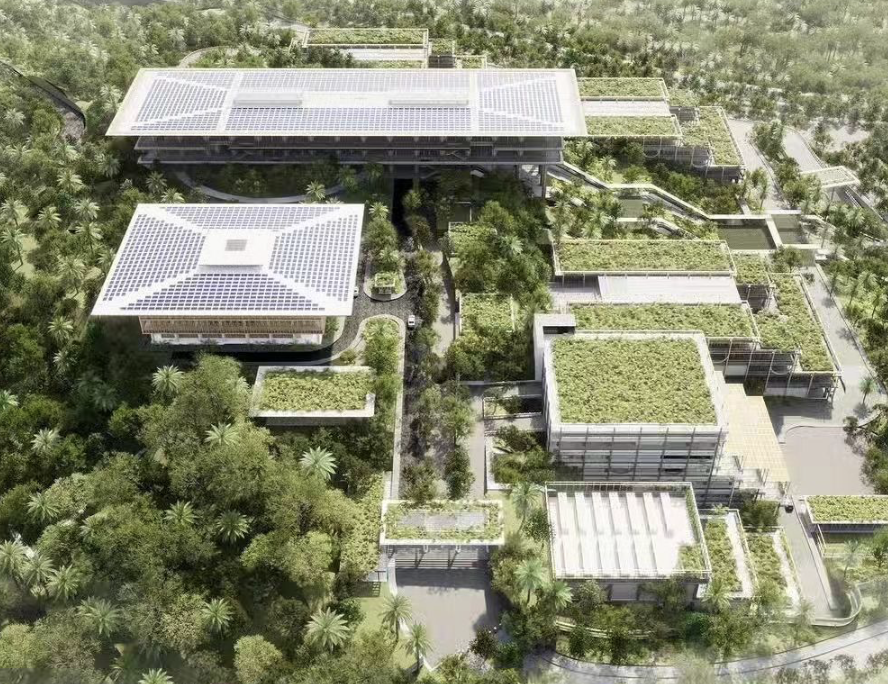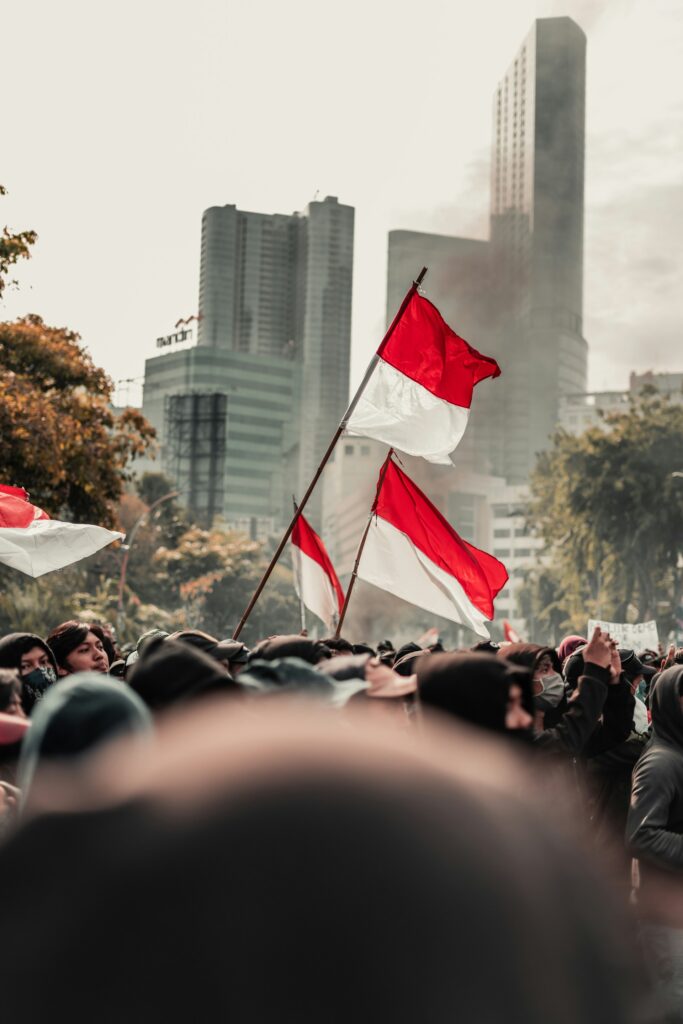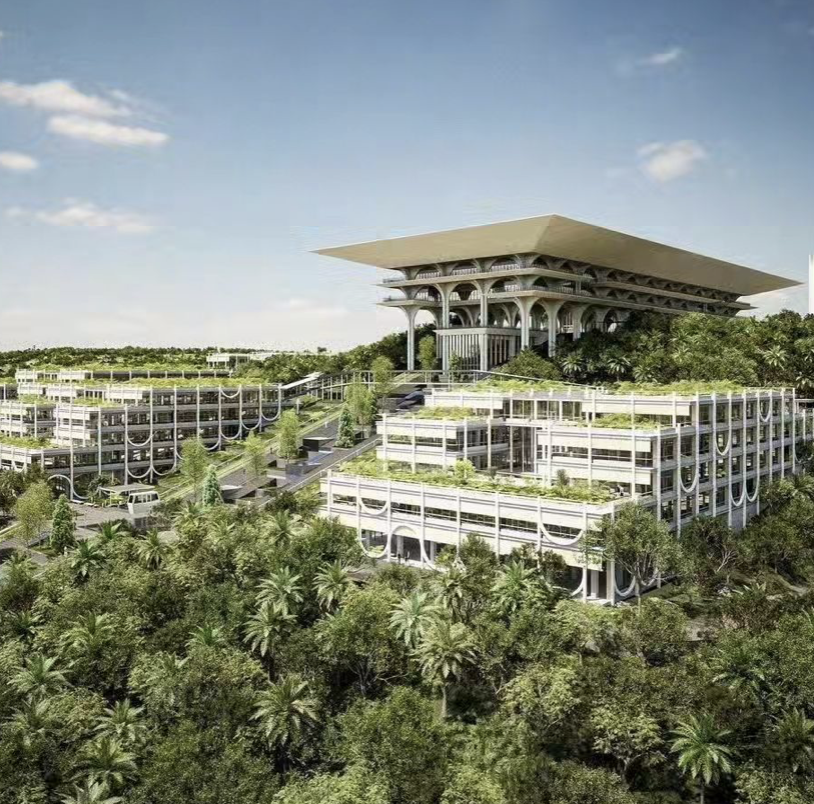Influencers in Indonesia: Hiring influencers to convince citizens of the merits of a project that will change the face of the country. This is what happened in Indonesia, where the government decided to rely on some popular creatives to support the birth of the new capital, which will be on the island of Borneo. The aim was not only to support Nusantara, a city built from scratch to replace Jakarta as the country’s main metropolis, but also to demonstrate the city’s progress and development to encourage people living in other places, especially those most at risk, to relocate.
One of the most threatened destinations is Jakarta itself, overcrowded with more than 11 million people scattered around the metropolitan area, even though the land on which it stands continues to sink: in one year, some areas have recorded a subsidence of 11 centimetres. This is due to subsidence caused by over-exploitation of groundwater, the effects of which are exacerbated by climate change, which is causing increasingly extreme weather conditions and rising sea levels.
The world’s greenest capital city
Four years after Indonesian President Joko Widodo announced the creation of the new capital, work is slow, and clouds are gathering over the promise that accompanied the presentation of the project: ‘Nusantara will be the smartest and most ecological city in the world, with 65% of its territory covered by forest’. It was a grandiose project on paper, which in its first phase should have attracted almost 2 million people from Jakarta. The condition is a must because, over time, problems of deforestation and the impact on biodiversity have arisen, as well as questions about excessive costs and the consequent willingness of younger people to move. The journey to populate the city will begin in late summer with the arrival of the first civil servants, who will work in the gigantic glass and concrete presidential palace, characterised by its garuda shape, in homage to the country’s symbolic bird.
Indonesia influencers
The sympathy operation produced a long series of social media content in which influencers showed their tours of discovering Nusantara under Widodo’s guidance. A narrative aligns with the initiative’s goal of “disseminating information to create a positive public attitude towards moving to the capital“. As Usman Kansong, Director General of Communications at the Ministry of Communications and Information Technology, candidly stated. The choice of influencers was no accident, as more than half of Indonesia’s 270 million people are between 18 and 39 years old, and the country is one of the most lucrative and strategic markets for Facebook, TikTok, and YouTube. Using well-known web faces to promote causes is common in Indonesia, although the influencers who attended the meeting with Widodo claimed the government did not pay them.




The need for rules and transparency
As often happens in such cases, the initiative polarised the public, divided between supporters of the president and critics of the new capital. The effectiveness of the message may be hampered by the lack of credibility of those behind it, especially in the eyes of the young public, the government’s primary target. Broadening the analysis, the Nusantara project has also attracted criticism from environmentalists and activists opposed to the clearing of mangroves and the forced relocation of indigenous communities. According to some experts, the number of trees that will be destroyed will increase the risk of flooding and water pollution. An eventuality that could jeopardise the emergence of the forest city. Then there is the struggle of those who have had to give up their land to make way for the new city because the promised money has not yet arrived.
Aside from what Nusantara will be and the ultimate success of the operation, the umpteenth non-transparent plot between the government and influencers should make us reflect on the role of social media and the need to define clear rules to favour information and reduce the spread of false news or controlled by the powerful.



